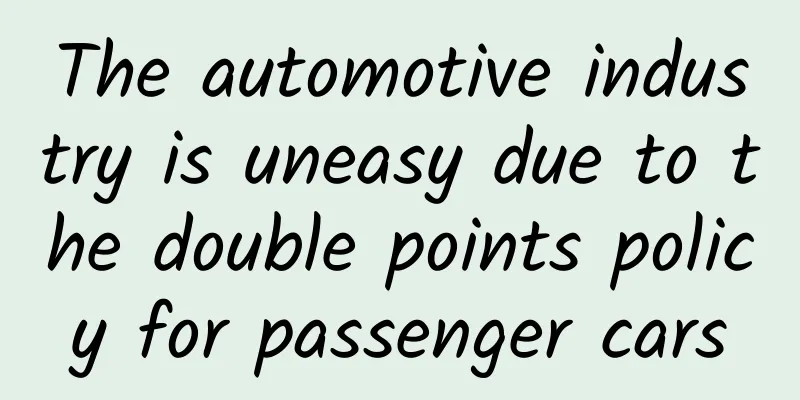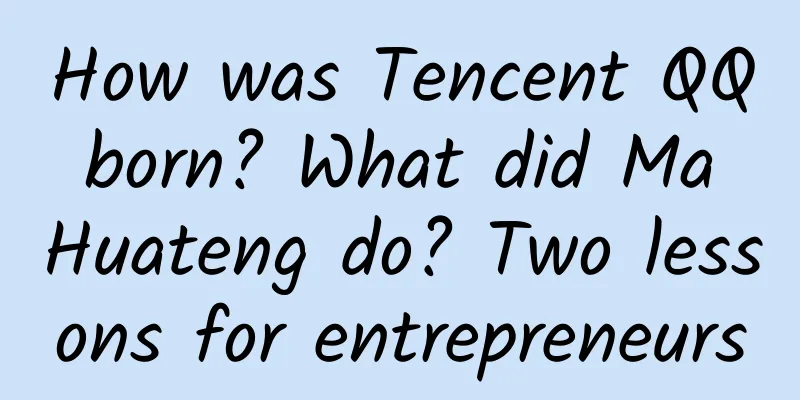The automotive industry is uneasy due to the double points policy for passenger cars

|
Recently, the "Measures for the Parallel Management of Passenger Car Enterprise Average Fuel Consumption and New Energy Vehicle Credits (Draft for Comments)" (hereinafter referred to as the "Dual Credits Draft") drafted by the Ministry of Industry and Information Technology has given many car companies a boost. When Premier Li Keqiang visited Germany at the beginning of this month, Reuters published an article saying that China had made concessions to Germany on the issue of electric vehicle carbon quotas. However, the public release of the "Dual Credits Draft" by the Ministry of Industry and Information Technology on June 13 seemed to slap the foreign media in the face, and the foreign media were also unhappy about it. They wrote that "China upheld strict sales quotas for electrically powered vehicles in a draft regulation issued on Tuesday, ignoring concessions agreed between Chinese Premier Li Keqiang and German Chancellor Angela Merkel earlier this month. (China upheld strict sales quotas for electrically powered vehicles in a draft regulation issued on Tuesday, ignoring concessions agreed between Chinese Premier Li Keqiang and German Chancellor Angela Merkel earlier this month.)" Screenshot of Reuters official website No expectations, no disappointment. On September 22, 2016, the Ministry of Industry and Information Technology announced the "Interim Measures for the Parallel Management of Enterprise Average Fuel Consumption and New Energy Vehicle Credits (Draft for Comments)" (hereinafter referred to as the "Interim Measures"), hoping to use it as an alternative policy to ensure the development of new energy vehicles in the post-subsidy era. After the publication of the "Interim Measures", it caused heated discussions in the automotive industry. Supporters believe that the parallel management of dual credits will help promote energy conservation and emission reduction as well as the development of new energy vehicles. Automakers with better development in the field of energy vehicles can obtain corporate development funds through new energy vehicle credit transactions, while automakers that do not attach importance to the development of new energy vehicles will eventually be unable to bear the heavy burden of credits and be eliminated by the market; however, foreign automakers represented by Volkswagen are worried. Heizmann, President and CEO of Volkswagen Group (China), has repeatedly called on the double credit policy to leave more windows for enterprises on different occasions. He said, "Volkswagen Group is committed to pursuing 'full compliance', rather than meeting the standards by paying fines or purchasing credits from friendly companies." As we all know, Volkswagen, as the multinational automobile group with the largest sales volume in China, does not have a large share of the electric vehicle market in China. Therefore, if it fails to meet the requirements of the double credit management within the specified time, it means that it will be subject to corresponding penalties. Not only does it need to spend money to buy new energy credits, but it also needs to accept factory production cuts. Germany has been lobbying the Chinese government on the issue of electric vehicle credits, hoping that China can delay the implementation of the dual credit policy until 2019. The situation took a turn for the better after German Chancellor Angela Merkel held a telephone conversation with Premier Li Keqiang in early 2017. "Major progress" was made when Premier Li Keqiang visited Germany in early June. According to Reuters, at a joint press conference, Li Keqiang said that he discussed the issue of electric vehicle quotas at the dinner, and China agreed to make concessions on the electric vehicle quotas of German automakers, but did not disclose the specific details of the concessions. This news should have made many automakers breathe a sigh of relief, but in less than half a month, the Ministry of Industry and Information Technology announced the "Dual Credit Opinion Draft", and the key is that the new draft did not make any concessions on the policy implementation time and credit ratio, and still required that the new energy vehicle credit ratio of enterprises from 2018 to 2020 should reach 8%, 10%, and 12%. The long sigh of relief turned into a breath of cold air. Why does the parallel management of the dual-point policy shake the automotive industry? "Double points" refer to the average fuel consumption points of passenger car companies and the new energy vehicle points. The accounting entities of the two points are both passenger car companies. The average fuel consumption points of a passenger car company are the difference between the company's average fuel consumption standard and the actual value, multiplied by the company's passenger car production or import volume (the calculation result is rounded to an integer). If the actual value is lower than the standard, the company will generate positive points, and if the actual value is higher than the standard, it will generate negative points. The positive average fuel consumption points of passenger car companies can be carried forward or transferred between related companies, but cannot be traded. The new energy vehicle credits of a passenger vehicle enterprise are the difference between the actual value of the enterprise's new energy vehicle credits and the target value. If the actual value is greater than the target value, positive credits will be generated. If the actual value is less than the target value, negative credits will be generated. Positive credits for new energy vehicles can be traded freely, but cannot be carried forward. In addition, from the "Double Points Draft Opinion", we can see that from 2018 to 2020, the new energy vehicle points ratio requirements for passenger car companies are 8%, 10%, and 12% respectively. The new energy vehicle points ratio requirements after 2020 will be separately formulated and announced by the Ministry of Industry and Information Technology. In 2016 and 2017, there will be no assessment of the new energy vehicle points ratio requirements for passenger car companies. Compared with the 2016 version of the "Interim Measures", there is no concession as reported by foreign media. Reuters screenshot The reason why many car companies are not calm is not only because of the dispute over the implementation time and considerations about the proportion, but also because new energy vehicle points cannot be carried forward. First, if it is officially implemented in 2018, most car companies will not be able to prepare in the future. In 2016, the German Volkswagen Group sold nearly 4 million vehicles in the Chinese market, but they were mainly traditional fuel vehicles. So far, Volkswagen has not produced an electric car locally in China for sale (which can obtain full official subsidies from the Chinese government). In addition to the Volkswagen Group, other German automakers have also complained that the above regulations have reduced their advantages in competing with their Chinese counterparts because they cannot implement the above regulations within the prescribed time. For Chinese automakers, the SUV market with high fuel consumption is currently in a period of vigorous development. If the method is to be implemented in the short term, many automakers will face the reality of adjusting the strategic route of new energy vehicles, and some automakers may not be able to achieve capacity transfer within the prescribed time. Heizman has publicly stated many times: "I personally think that we need to take steady steps and automakers need sufficient time to make the transition." He believes that the points policy announced at the end of 2016 and implemented in 2018 is too hasty for automakers. "Heizman's anxiety is exactly the reality faced by many automakers now. Secondly, there are also disagreements in the industry regarding the requirements for the proportion of new energy vehicle credits for passenger car companies. Xu Yanhua, deputy secretary-general of the China Association of Automobile Manufacturers, once said that given that the actual credit value (estimated) of the new energy vehicle industry in 2016 was about 3%, there was only one year left until 2018, and there were still many uncertainties on the demand side, from the perspective of the opinions of major companies and feasibility, it would be more appropriate to adjust the credit ratio to 5%, 8%, and 12%, and allow negative credits in 2018 and 2019 to be deferred for one year. The Ministry of Industry and Information Technology's "Draft Opinion on Double Credits" obviously did not adopt the suggestions of the China Association of Automobile Manufacturers. This is undoubtedly a double blow to Great Wall Haval, which currently has high-fuel-consumption SUV models as its main camp, without the support of new energy models. If the product line is not adjusted, a large number of negative credits for new energy vehicles will be generated in the later stage. Perhaps it is not just Haval that should pay attention to this problem. As the leader of independent brands, Changan Automobile is also facing tremendous pressure in terms of fuel consumption. Since new energy vehicles have just started and are still small in scale, and traditional fuel vehicles are huge in scale, both fuel consumption credits and new energy credits will be negative at the beginning. Thirdly, there is the controversial question of whether new energy vehicle credits can be carried forward. The "Dual Credits Draft" clearly stipulates that new energy vehicle credits are not allowed to be carried forward, but Heizmann believes that Volkswagen will have a considerable surplus of new energy credits by 2020. "Rather than wasting these credits, it is better to use them in other years." Judging from the current scale of new energy vehicle development, BYD and BAIC New Energy are likely to have a large number of new energy vehicle credits in the future, which may be in sharp contrast to the large number of negative new energy vehicle credits of some automakers. Volkswagen Group CEO Heizmann Is there still hope for the delayed implementation of the double points policy? Overall, the "Double Points Draft" continues the guiding ideology of the "Interim Measures" announced in 2016, namely, to improve the energy-saving level of automobiles, establish a long-term mechanism for the management of energy-saving and new energy vehicles, promote the healthy development of the automobile industry, and alleviate energy and environmental pressures. From the content of the "Double Points Draft" published, it is not only more scientific and complete in wording (for example, the power consumption per 100 kilometers has also become an important factor in the vehicle model points), but also more clear in its orientation. Lei Hongjun Bosch believes that the new draft opinion changes the points for pure electric vehicles to linear regulations, indicating that China's "pure electric drive" technology route is gradually evolving into "pure electric vehicles"; secondly, the lightweight of the whole vehicle and the improvement of battery energy density must be accelerated for enterprises; and the "Regulations" are currently only a draft for comments, and the final implementation date must be approved by the State Council, so enterprises still have great expectations for the postponement of implementation. Screenshot of draft opinion According to the Auto Industry and Economy Network, "The head of the new energy research institute of a joint venture automaker revealed that the latest news is that in 2018, the number of new energy vehicles and traditional gasoline vehicles of automakers will only be counted but not punished, that is, if the proportion of new energy credits does not reach 8%, there will be no punishment. In other words, to a certain extent, companies have gained a buffer period for policy transition." Although it is not officially confirmed whether the implementation will be delayed in the end, it is believed that many automakers have begun to re-position the new energy vehicle field in addition to expressing their expectations, in order to cope with the dual credit policy that will be implemented in the near future. The examples of the JAC Volkswagen joint venture and the "Beidaihe" may open up new ideas. As a winner of Toutiao's Qingyun Plan and Baijiahao's Bai+ Plan, the 2019 Baidu Digital Author of the Year, the Baijiahao's Most Popular Author in the Technology Field, the 2019 Sogou Technology and Culture Author, and the 2021 Baijiahao Quarterly Influential Creator, he has won many awards, including the 2013 Sohu Best Industry Media Person, the 2015 China New Media Entrepreneurship Competition Beijing Third Place, the 2015 Guangmang Experience Award, the 2015 China New Media Entrepreneurship Competition Finals Third Place, and the 2018 Baidu Dynamic Annual Powerful Celebrity. |
>>: Domestic brands are busy making SUVs and ignoring sedans. Is there really no risk in doing so?
Recommend
What should I do if the Douyin Store merchant entry review is rejected?
When merchants enter Douyin stores , they must up...
It won’t degrade for 450 years. How harmful is it to discard masks carelessly?
Produced by: Science Popularization China Produce...
How to build a corporate mobile website? Which companies are good at mobile website construction?
How much does it cost to build a mobile website n...
What is your chance of encountering Aurora? This index is the key
Since 2019, the sun has entered its 25th activity...
The scale of water purification market reaches tens of billions, and vicious competition accelerates the reshuffle
As more and more households use water purifiers, ...
Marketing promotion case: 6 keywords of Luckin Coffee!
Luckin Coffee's sophisticated and sharp Inter...
Is eating crabs and oranges together like eating arsenic? Here is a guide to debunking the myth about eating crabs!
Will eating crabs and persimmons together cause d...
The fourth course of Qihangge video account
Course Catalog Dagang: 1. Video account recommend...
15 user operation thinking models
There are endless articles about user operations ...
Yazun: The beginning of the new year - Taobao and Tmall are planning a new starting point, dismantling industry opportunities from different dimensions
Yazun: The beginning of the new year - Taobao and...
How to design an excellent website navigation?
Website navigation (also known as internal linkin...
Android bottom navigation bar implementation (Part 3) TextView+LinearLayout
Here is a brief record of implementing the Androi...
New iOS/iPadOS 15 development tools prioritize 5G over Wi-Fi
August 12 news Apple today released a new develop...
Still worried about promotion? Here is a list of promotion channels for your reference
For operations , user volume and revenue are the ...
What are the functions of the Guangzhou office leasing mini program? How much does it cost to develop a rental app?
Nowadays, many companies choose to rent an office...









